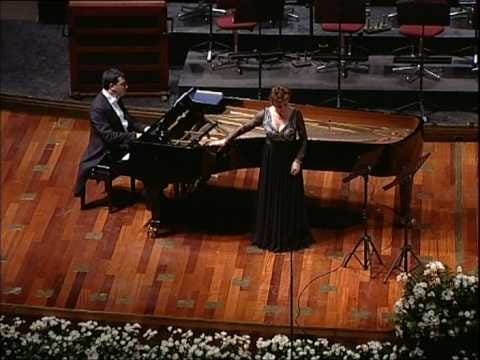This is a sort of encore performance, tying together threads of several posts, perhaps starting with the harp variations on Bellini’s Norma, one of my favorite operas. The setting for I Puritani is in England during the turbulent times of Oliver Cromwell and religious divide. This last opera of Bellini weaves together political and religious themes with a romance between Elvira and her beloved Arturo, a Royalist, who without explanation, disappears moments before their wedding in order to escort the widowed queen to safety.
Bellini was attracted to the story because Elvira goes mad with despair. He was desperate to create a truly dramatic opera that stirred emotions without triggering the censors who took a dim view of rebellion against the status quo; however, this fever was spreading like wildfire during this period of history (1835). He worked very hard to make the opera as perfect as possible while simultaneously arousing tremendous emotion. Needless-to-say, the demands on the singers are tremendous so we will give the impeccable Mariella Devia an encore.
Here his sweet voice
He called me and then disappeared.
Here he swore to be faithful,
Here he swore,
And then cruel, he fled!
Ah! never again here absorbed together
In the joy of sighs.
Ah! make me hope,
Or leave, let me die!
For those who want to watch the complete opera, I would recommend the two videos with Olga Peretyatko. The orchestra and caste are superb and capture all the sentiments Bellini wished to express in this opera.
So, why am I so passionate about opera? Besides the gorgeous music, all the art forms are combined in opera. There is a story, the libretto, and the inspiration behind the story. There are costumes, stage design and settings, acting, a full orchestra, and often immortal themes that have a curious longevity. Norma is set in Druid times, but the messages are as cogent today as hundreds or thousands of years ago. If we wanted to simplify the messages of I Puritani, we have the classic political conflicts and the battles and divisiveness fomented by differences . . . as well as the passion for life and love that is inherent in human nature. Elvira did not know if Arturo was unfaithful, dead or alive, or even whether they would be happy to meet again in the afterlife. Her imagination got the best of her, but unlike many operas, this one has a happy ending.
Meet Arturo and the queen and Arturo’s rival in love. Juan Diego Florez is a Peruvian tenor who has performed on countless stages around the world.
In choosing I Puritani, I feel that the conflicts we have today are not really different than those in the past, nor is the toll on individuals and their families. So, as we celebrate Thanksgiving, we should be grateful to be alive and hopeful that wisdom will prevail over reckless ambitions and carnage.
Copyright by Dr. Ingrid Naiman 2024 || All Rights Reserved
For permission to quote, please contact the author. Sharing via e-mail and posting links are welcome so long as the author and source are properly cited. Reprinting is strictly prohibited.
This Substack column was launched in mid-January 2023. This is post #200. Paid subscribers are greatly appreciated, but only 10% of readers are paid subscribers. Maybe monthly or annual commitments are too much for some people so if you would like to make a one-time donation, you can use this link. Please note, all subscriptions and donations are going through the Institute for Invisible Epidemics, and will appear on your credit card as iie-academy.



